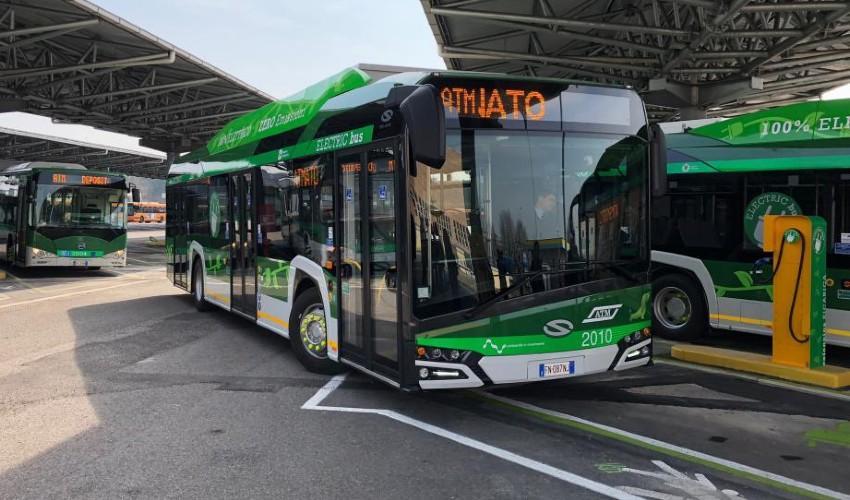
Circular Economy Will Make Electric Buses the Best Economic Choice in Four Years
A STUDY BY THE BOCCONI GREEN CENTER WITH THE COLLABORATION OF ENEL FOUNDATION REVISITS THE COST CALCULATIONS, TAKING INTO ACCOUNT THE POSSIBLE REVENUES FROM THE CONNECTION OF BATTERIES TO THE GRID AND THEIR SECOND LIFEIn Italy today less than 400 buses are electric, 195 of them in Milan, out of a total of over 42,000. The main obstacle to their adoption by local public transit companies is the higher purchase cost compared to diesel alternatives, which is not yet fully offset by lower operating costs. In short, the total cost of ownership (TCO) over the life cycle of the vehicle is higher.
In the report Scenari e prospettive dell’elettrificazione del trasporto pubblico su strada, presented today at Bocconi, Carlo Papa (Enel Foundation), Oliviero Baccelli, Claudio Brenna, Gabriele Grea and Antonio Sileo of GREEN, the Center for Research on Geography, Resources, Environment, Energy and Networks of the University, however, show how electric buses are much more worthwhile if, in addition to costs, we also consider the revenues, thus moving to a perspective of total cost and revenues of ownership (TCRO).
“The model,” said Baccelli at the presentation of the report, realized with the scientific contribution of Enel Foundation, “offers a systemic vision of all cost and income components in the useful life cycle of the vehicle, with an integrated view of the initial investment in vehicles and support infrastructure, operational management and maintenance, including also the possibility of leveraging on circular economy aspects, such as batteries’ second life management or the integration with other network systems, as in the case of Bus2Grid.”
Bus2Grid refers to the possibility of connecting bus batteries to the electricity distribution network, allowing the batteries to release energy at times of greater demand. Second life management of a battery includes both its repurpose as a stationary energy store, its possible disassembly and reassembly for resale, and the recycling of the valuable materials of which it is composed.
The report calculates that even today, taking into account the funding provided by both the Next Generation EU program and other regulations, the TCRO of 12-meter electric buses (the most popular format and the subject of the analysis) is very close to that of diesel engines (€0.979 per kilometer against €0.968) and that in a few years, in 2025, their cost effectiveness will already be higher than that of traditional engines, both in terms of TCO and TCRO. The TCO of a full electric bus will be €0.827 per kilometer, against €0.922 for diesel, the TCRO of €0.779 against €0.922 (TCO and TCRO for the diesel motorization coincide, as revenues from Bus2Grid or second life are not possible).
The advantage increases even further by moving the time horizon forward. In 2030 the TCRO of full electric will be €0.672 and that of diesel €0.921.
“Let's not forget, moreover, that to these calculations must be added the collective benefits due to the reduction of climate-changing emissions and local pollutants,” added Baccelli.
The analysis also calculates the costs of other alternatives to diesel (compressed natural gas, various types of liquid natural gas and hydrogen). Only compressed natural gas displays costs comparable to those of diesel in 2021, but for other motorizations and time horizons TCOs and TCROs are never lower than diesel.
Preliminary results of an ongoing comparison with the costs incurred by local public transit companies in 10 other countries (Spain, Chile, US, Colombia, Brazil, Mexico, Australia, Uruguay, Peru, and UK) shows, moreover, that the cost-effectiveness calculations depend strongly on the regulatory framework and the market organization of the sector. In some Latin American countries, the cost-effectiveness threshold has already been exceeded, while in others, as in the case of school buses in the United States, it will not even be so in 2030.
by Fabio Todesco
